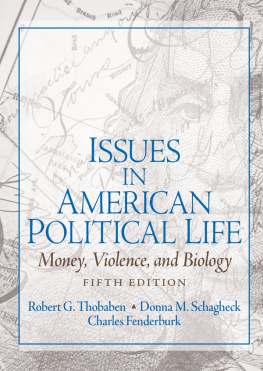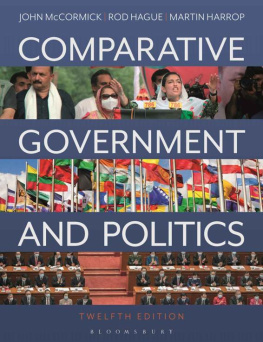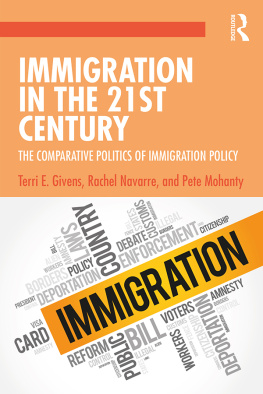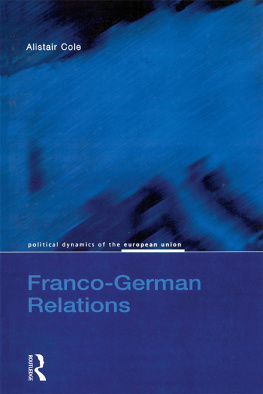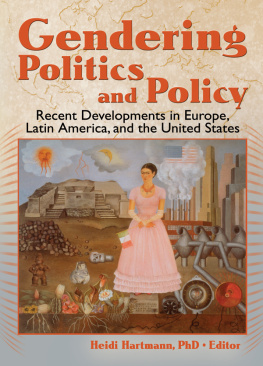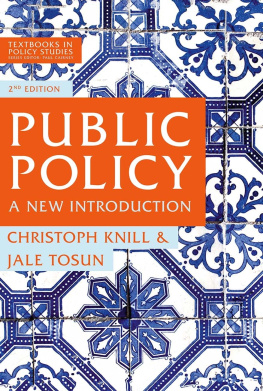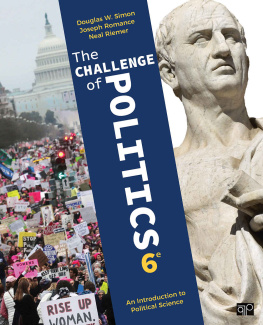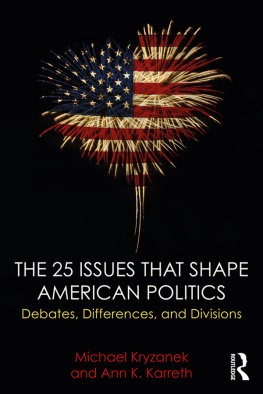FIFTH EDITION
Issues in American Political Life
Money, Violence, and Biology
Robert G.Thobaben
Donna M. Schlagheck
Charles Funderburk
Wright State University
First published 2006, 2002, 1998, 1995, 1991 by Pearson Education, Inc.
Published 2016 by Routledge
2 Park Square, Milton Park, Abingdon, Oxon OX14 4RN
711 Third Avenue, New York, NY, 10017, USA
Routledge is an imprint of the Taylor & Francis Group, an informa business
Copyright 2006, 2002, 1998, 1995, 1991 Taylor & Francis. All rights reserved
All rights reserved. No part of this book may be reprinted or reproduced or utilised in any form or by any electronic, mechanical, or other means, now known or hereafter invented, including photocopying and recording, or in any information storage or retrieval system, without permission in writing from the publishers.
Notice:
Product or corporate names may be trademarks or registered trademarks, and are used only for identification and explanation without intent to infringe.
Credits and acknowledgments borrowed from other sources and reproduced, with permission, in this textbook appear on appropriate page within text.
ISBN: 9780131930629 (pbk)
Cover Designer: Bruce Kenselaar
Library of Congress Cataloging-in-Publication Data
Thobaben, Robert G.
Issues in American political life : money, violence, and biology / Robert G. Thobaben,
Donna M. Schlagheck, Charles Funderburk. 5th ed.
p. cm.
Includes bibliographical references and index.
ISBN 0131930621
1. United StatesPolitics and government. 2. Political planningUnited States.
3. Policy sciences. I. Schlagheck, Donna M. II. Funderburk, Charles, 1943- III. Title.
JK271.T46 2006
320.60973dc22
2005025181
Contents
In 1989, Texas Congressman Martin Leath offered an assessment of the problems confronting American society and concluded that our resolve to deal with them is practically nonexistent. By the year 2000, he stated, Well go down on the list of world powers: Hopelessly in debt, hopelessly behind in technology and hopelessly in over our heads with a society dominated by the drug culture, and a population undereducated, unmotivated and woefully inadequate to compete in the world economic system.1
It is not necessary to agree with Congressman Leaths pessimistic scenario in order to conclude that the United States faces a number of serious issues as we begin the year 2006. Issues in American Political Life, Fifth Edition, is an introduction to the nature of major policy issues confronting American society and government. These issues are grouped under three broad headings: Money, Violence, and Biology. Each issue is discussed in terms of historical background, current status, and proposals and prospects for managing the problem. Our objective is to provide introductory-level students with information and analysis that will permit them to understand the issues and reach their own conclusions about future directions.
We wish to recognize the contributions of a number of individuals and groups who gave us valuable assistance. Dean Mary Ellen Mazey and the faculty committee that administers the College of Liberal Arts Research Fund at Wright State University provided funds for typing. Joanne Ballmann and Rene Harber deserve special thanks for doing such a fine job in typing the manuscript and tables. Thanks to Eileen Kerr for providing invaluable research assistance, and Tom Kerr for bibliographic assistance. We are grateful for the helpful critique offered by Robin Ramey of Ohio University, reviewer for this edition. Finally, we are grateful to Prentice Hall for its commitment to this project.
Representative Martin Leath is cited by Martin Gottlieb, The Real Division in U.S. Politics Now, Dayton Daily News, December 6, 1989, p. 14A.
Changes in American political life foretell many transformations in the issues and policy processes that comprise American politics in the twenty-first century. Three basic values, however, will persist as the primary goals in American political life. Prosperity, progress, and security have been and will continue to be the fundamental social and political values on which the nation operates. Money, technology, and violence represent the primary means and threats to those ends, and dominate the American quest for abundance, improvement in the human condition, and guarantees of safety so that individuals and the nation as a whole may enjoy those values. In order to best realize these important social goals, human beings do two thingsthey establish security forces (police and armed forces) and they establish political relations. The political leaders decide who gets what, when, and how, and the security system backs up these decisions with force. What is clear is that some individuals and groups have the power to make decisions (laws) that bind the entire community and that these decisions are backed up by force.
Therefore, power is the central category of analysis in the study of politics. Political power may be based on a wide variety of attributes, but three of these factors seem to be particularly significant: control of money (wealth), use of violence (force), and biology (health and physical well-being). Four aspects of American society further define the relationships among money, violence, biology, and politics:
The transcendence of the industrial state
The shift from manufacturing to services
America as a consumer society
America as a superpower in the post 911 era
The first and foremost factor is the evolution of America from an industrial society to one based on technology and information. The fundamental change in contemporary America is that it is no longer primarily an industrial society. Various commentators have used different terms to describe the evolution of America from an industrial into a technological society. Harvard sociology professor Daniel Bell has analyzed the evolution of societies in terms of preindustrial, industrial, and postindustrial phases. Postindustrial societies are characterized by a shift from a manufacturing economy to one based on services, information, and technology. Both Bell and political scientist Everett C. Ladd contend that the United States is best understood as being qualitatively different from an industrial society. In his book Megatrends, social forecaster John Naisbitt has described the transformation of America into an information society based on high technology.1
Social, economic, and political changes in contemporary America are best understood within the context of the evolution of the United States into a high-technology, information-processing society. The two major dimensions of post-industrial society, according to Bell, are the central importance of theoretical knowledge and the expansion of the service information sector as opposed to manufacturing. American society has entered a new era in which theoretical knowledge becomes the basis of new technologies.2 In contemporary American society, economics and politics rest primarily not on manufacturing but on information and applied technology. Growth and development of new products in the economy are principally in the area of human services (health, education, and social services) and in the professional and technical areas (especially research and the processing and distribution of information).

